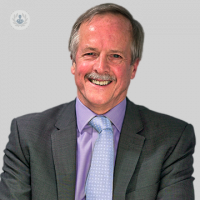New bone-building drugs for osteoporosis
Escrito por:Our bones can become weak and brittle over time. This occurs when the body produces too few bone cells, which ultimately reduces overall bone density.
In the past, it was only possible to stop further loss of bone density. Now, with newer drugs, it’s possible to regain some of this loss.
This article explains how these new bone-building drugs work and how they differ from older ones.

How do bone-building drugs for osteoporosis work?
Most drugs for treating osteoporosis work by inhibiting or stopping the breakdown of bone, while at the same time, allowing the formation of the new bone cells.
Now, new bone-building drugs do the reverse – they encourage the cells (called osteoblasts) to lay down the new bone that would eventually encourage cells that break down bone to work harder. They increase the formation of new bone quite rapidly, while not increasing nearly so much of the breakdown of bone.
It’s important to note that there is an imbalance for a short time between the rate of formation and breakdown, but this balances out over time. About six to twelve months after taking these new osteoporosis drugs, you will be getting a significant increase in bone density.
Older bone-building drugs
The older drug for osteoporosis is typically known as Teriparatide and it is currently the only one available in the UK. This is injected once every day for a maximum of 24 months.
Newer bone-building drugs
Evenity, a new bone-building drug for osteoporosis, is now licensed in the UK and is currently set to become available in early 2020. This is injected once a month for 12 months.
What increase in bone density can be expected after taking bone-building drugs?
In the spine, you can expect an increase in bone density of about 10-15% over one to two years, depending on the drug. Evenity, the newer drug, offers better results at a slightly faster pace.
At the hips, Evenity can increase hip bone density by 3-4%. Usually, Teriparatide doesn’t increase hip bone density enough to be measurable.
Who is the ideal candidate?
To be eligible, you need a very low bone density. It must be low enough to be considered osteoporosis.
Furthermore, both old and new bone-building drugs should primarily be used in those who have had a spine fracture or are at the highest risk of a spine fracture. This is because those who have experienced a spinal fracture are highly susceptible to another, and these drugs are very effective in preventing them.
Age and gender do not affect a person’s risk of osteoporosis. The new bone-building drug, however, will only be licensed initially for post-menopausal women. Younger women have a very low chance of needing them unless they’ve had an eating disorder or an exceptional condition which has increased their risk of osteoporosis at a young age.
Are bone-building drugs safe? Do the risks outweigh the cons of not taking the drugs?
In general, they are safe, as long as you’ve met the criteria - that is, that you are a woman with very low bone density and at a high risk of a spinal fracture.
Regarding the older bone-building drugs, they can increase the calcium level in your blood. Therefore, if you already have a high level of calcium in your blood, your rheumatologist may advise against taking it.
For the new drug, Evenity, those who have had a heart attack or stroke within the previous year shouldn’t take it. In this case, taking the drug would mean the risks outweigh the potential side effects.
Overall, side-effects are rare and consist of general side effects of injections such as local upset and local irritation. While the extremely rare side-effects of osteonecrosis of the jaw and atypical femur fractures seen with other osteoporosis drugs have been reported in those taking Evenity, it is unlikely that the new drug is actually causing those.
Are there alternatives to drugs for those who don’t want to take them but want to increase bone density?
You can’t reliably increase bone density through lifestyle measures. Weight-bearing exercises have the potential to assist in slowing or stopping a loss of bone density, but it’s not generally possible to increase it through these means.
Whereas, with medical treatment for osteoporosis, the likelihood that you’ll receive a significant increase in bone density is much, much higher. From March 2020, when the new bone-building drug becomes available, there is the potential to regain some of your lost bone density.
Professor David Reid is a leading international expert in the assessment and treatment of osteoporosis. Visit Professor Reid’s Top Doctors profile to book a consultation and discover how he can assist you in looking after your bone health.



